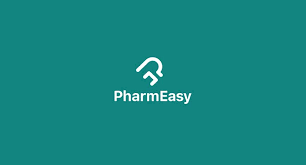In today’s digital age, health apps have become essential tools for managing and improving our well-being. With a myriad of options available, choosing the right app can be daunting. This article delves into the top health apps, evaluating their features and benefits to help you make an informed decision for comprehensive care.

What Are Health Apps?
Health apps are mobile applications designed to assist users in managing various aspects of their health. These can range from fitness trackers and diet planners to mental health support and chronic disease management. By integrating technology into daily routines, these apps aim to promote healthier lifestyles and provide personalized care.
Benefits of Using Health Apps
Convenience
Health apps offer the convenience of monitoring and managing health from the palm of your hand. Whether tracking your steps, logging your meals, or scheduling doctor’s appointments, everything is accessible through your smartphone.
Personalized Care
Many health apps use artificial intelligence and data analytics to provide personalized recommendations. By analyzing user data, these apps can suggest tailored fitness routines, dietary plans, and wellness tips that align with individual health goals.
Improved Health Management
For those with chronic conditions, health apps can be lifesavers. They allow users to track symptoms, medication schedules, and doctor appointments, ensuring comprehensive care and better disease management.
Evaluating the Best Health Apps for Comprehensive Care
1. MyFitnessPal
Features:
- Calorie Counter
- Exercise Tracker
- Community Support
Benefits: MyFitnessPal is a versatile app that helps users manage their diet and exercise routines. Its extensive food database and user-friendly interface make it easy to log meals and track calories. The app also integrates with other fitness devices, providing a comprehensive view of your health metrics.
2. Headspace
Features:
- Guided Meditations
- Sleep Aids
- Stress Management Tools
Benefits: Headspace is designed to improve mental well-being through guided meditation and mindfulness exercises. The app offers various programs to help users manage stress, sleep better, and enhance their overall mental health.
3. Fitbit
Features:
- Activity Tracker
- Sleep Monitoring
- Heart Rate Monitoring
Benefits: Fitbit is a popular fitness app that works in conjunction with wearable devices. It tracks physical activities, monitors sleep patterns, and measures heart rate, providing users with detailed insights into their health and fitness levels.
4. Calm
Features:
- Relaxation Techniques
- Sleep Stories
- Breathing Exercises
Benefits: Calm focuses on promoting relaxation and improving sleep quality. The app offers a variety of tools, including guided meditations, sleep stories, and breathing exercises, to help users unwind and manage stress effectively.
5. Medisafe
Features:
- Medication Reminders
- Pill Tracker
- Health Reports
Benefits: Medisafe is designed to help users manage their medication schedules. It sends reminders for medication times and tracks adherence, ensuring that users never miss a dose. The app also provides health reports that can be shared with healthcare providers.
Choosing the Right Health App
Determine Your Needs
Before selecting a health app, it’s crucial to identify your specific health needs. Are you looking to lose weight, manage stress, or track a chronic condition? Understanding your goals will help you choose an app that aligns with your requirements.
Evaluate Features
Not all health apps are created equal. Compare the features of different apps to see which ones offer the tools and resources you need. Look for apps that provide comprehensive care, such as tracking, reminders, and personalized recommendations.
Read Reviews
User reviews can provide valuable insights into the effectiveness and usability of health apps. Look for reviews that mention both the positives and negatives to get a balanced view of the app’s performance.
Consider Integration
Many health apps can integrate with other devices and apps, providing a more holistic view of your health. For example, fitness apps that sync with wearable devices can offer more accurate activity tracking and health insights.
Conclusion
Incorporating health apps into your daily routine can significantly enhance your ability to manage and improve your well-being. By evaluating the best health apps for comprehensive care, you can find the tools that align with your health goals and needs. Whether you’re looking to track your fitness, manage stress, or adhere to medication schedules, there’s a health app out there to support your journey towards better health.